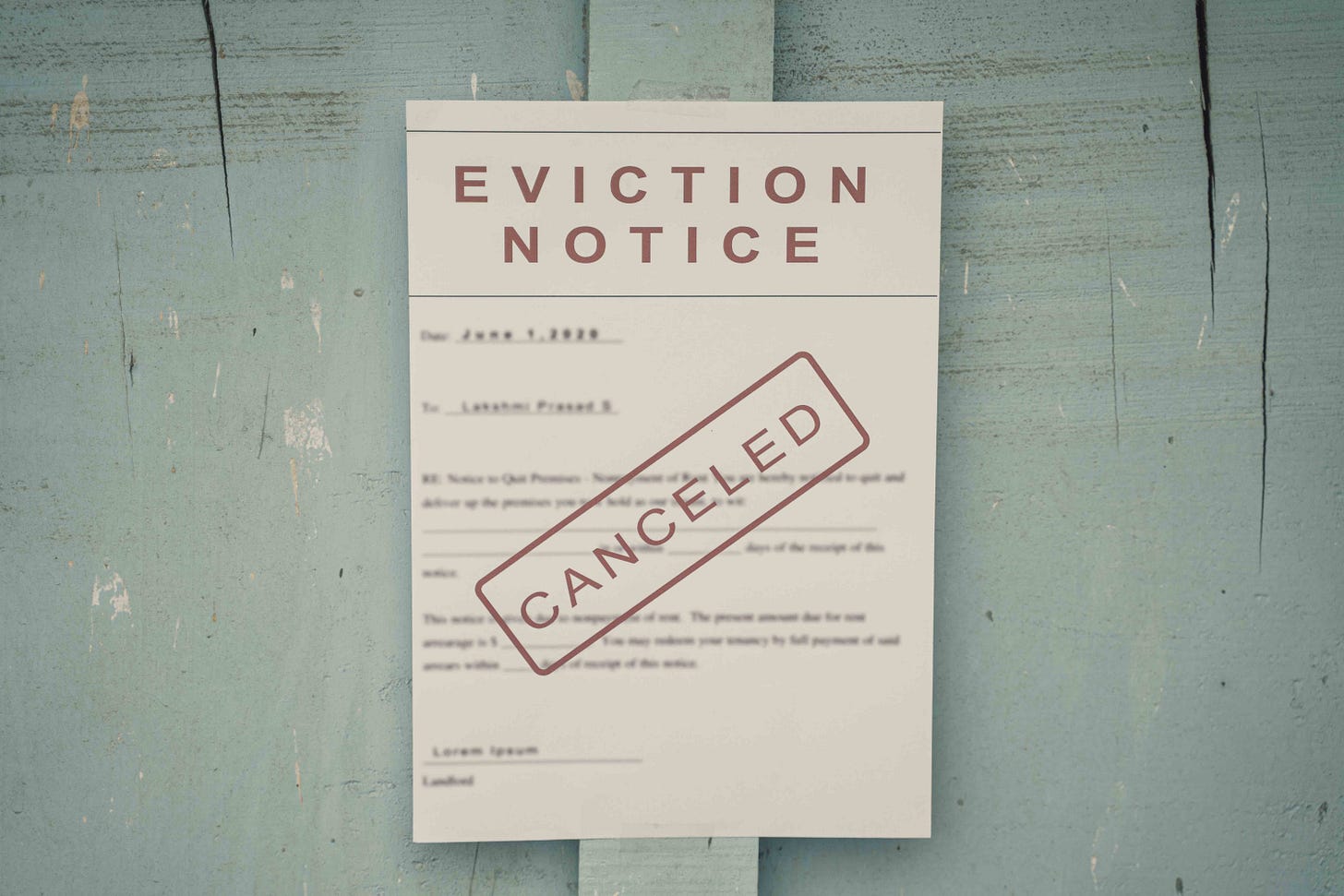E-Pluribus | August 5, 2021
Are we done amending the Constitution, what the eviction moratorium extension says about our institutions, and making (no) sense of gender ideology.
A round up of the latest and best writing and musings on the rise of illiberalism in the public discourse:
Jesse Wegman: Will We Ever Change the Constitution Again?
“Everybody talks about the weather, but no one ever does anything about it,” Mark Twain wrote. In these days of great dissatisfaction with the state of our politics, sometimes the same seems true of our Constitution, but per Jesse Wegman in the New York Times, that seems unlikely to change. Wegman takes a look at the history of amending the Constitution and the slim chances of changes any time soon, regardless of which side wants it.
This paltry record would have surprised the nation’s founders, who knew the Constitution they had created was imperfect and who assumed that future generations would fix their mistakes and regularly adapt the document to changing times. “If there are errors, it should be remembered, that the seeds of reformation are sown in the work itself,” James Wilson said to a crowd in 1787. Years later, Gouverneur Morris wrote to a friend about the mind-set of the Constitution’s framers: “Surrounded by difficulties, we did the best we could; leaving it with those who should come after us to take counsel from experience, and exercise prudently the power of amendment, which we had provided.” Thomas Jefferson went further, proposing that the nation adopt an entirely new charter every two decades. A constitution “naturally expires at the end of 19 years,” he wrote to James Madison in 1789. “If it be enforced longer, it is an act of force, and not of right.”
[…]
Now, half a century after the last true amendment, that evolution has come to a standstill. With essentially no prospect of reform in the foreseeable future, the nation faces an unsettling question: Are we stuck with the Constitution as it is? What does that mean for our future?
[…]
Why does all this matter? Because if the Constitution can’t be changed to adapt to modern needs and the Supreme Court becomes both too powerful and too politicized, the political system starts breaking down. Mr. Rana fears that American government is entering a state of institutional paralysis, failing to address a number of enormous social problems, including the coronavirus pandemic, racial and economic inequality, the fallout of overseas wars and the continuing aftereffects of the housing crisis.
In a functioning system, political leaders would listen to the views of the majority and transform those views into effective policies. “Instead what we’ve seen are paralysis and popular disaffection that feeds various kinds of destructive political forms and movements, and then it all starts again,” Mr. Rana said. “The United States is effectively a great empire. And a common story about how great empires decline is that the institutions are not able to address the basic social problems the society faces.”
Read it all here.
George Will: The eviction moratorium exacerbates America’s institutional disarray
Joe Biden, Constitutional scofflaw. This week, Joe Biden announced an extension of the CDC’s eviction moratorium despite his acknowledgement that most constitutional scholars don’t believe it would hold up at the Supreme Court. George Will writes that this incident has become typical of the dysfunction of our public institutions.
The Constitution says government shall not take private property “for public use, without just compensation.” The concept of “public use” has become almost limitlessly elastic. It originally referred to things (roads, bridges, etc.) the general public uses. Then, courts expanded it to include combating “blight.” The Supreme Court’s infamous 2005 Kelo decision stretched “public use” to encompass government taking one person’s property to give it to another private party who would pay higher taxes. If an eviction moratorium to prevent the spread of infectious disease fits within the capacious modern conception of taking for “public use,” then there must be compensation for the taking.
State and local governments have managed to distribute only about $3 billion of the $46 billion Congress appropriated for rental relief. President Biden’s press secretary says he would have “strongly supported” yet another CDC extension of the moratorium, but “unfortunately” in June, in the pesky Supreme Court, four justices termed it illegal. A fifth agreed but said it should be allowed to expire July 31 — and could only be extended by “clear and specific congressional authorization (via new legislation).”
By ordering yet another extension, as he did on Tuesday, Biden — who is more terrified of progressives than he is impressed by the Supreme Court — has decided to dare the court to make good on its signaled intent to defend the separation of powers. Whenever this lawless moratorium seems about to end, there will be another wave of media stories, like last week’s, anticipating a tsunami of evictions, thereby triggering calls for what would be a sixth extension. Eventually, the memory of normality having faded, the moratorium would seem normal and warranted as “social justice” because evictions might have a “disparate impact” on minorities, and hence be evidence of “systemic racism,” even absent evidence of disparate treatment.
Read the whole thing.
Michael Robillard: The Incoherence of Gender Ideology
The corruption of the language is one of the dangerous trends we have highlighted at Pluribus. Michael Robillard takes a deep dive into “gender” ideology at Quillette and explores the blatant contradictions that plague issues of gender identity and transgender rights. Giving individuals rights based on self-identification as a “man” or “woman” when those terms are simultaneously being stripped of any consistent meaning is a recipe for disaster.
This article… sets out to make better philosophical sense of the concepts of “gender,” “transgender,” and “transgender rights.” Contra arguments espoused by gender ideology advocates, I argue that, by the starting premises of their own argumentation, the notions of both “gender” and “transgender” are either incoherent or vacuous and therefore cannot be the conceptual grounds by which persons derive actual positive or negative rights claims. On the contrary, such false “rights” claims actually amount to severe rights violations of the vast majority of everyday language-users and citizens and cause irreparable damage to the set of shared social and linguistic practices necessary for coordinating the basic public goods of a free, flourishing, and truth-preserving society.
The social and political consequence of allowing such false rights claims to swell unopposed to the level of positive rights claims, eventually codifying into actual state-compelled law (as is already the case with Canada’s Bill C-16 and soon to be with America’s Equality Act) will be nothing less than the legal sanctioning of a new priest class of magical people who speak all of reality into existence, and then the rest of society who must simply obey. Consequently, I argue that such passive-aggressive tyranny warrants strong and vocal public rejection and opposition by American lawmakers, politicians, academics, and citizens alike with the greatest of urgency.
[…]
And while proper names such as “Bruce” or “Caitlyn” do technically fall within the purview of private determination and personal prerogative, indexicals within a language, such as “he” or “she” indirectly connote and refer to fixed meanings deep within our overall shared network of public meanings and are not similarly revisable according to individual personal preference. Insofar as our collective meanings are about our shared storehouse of collective human knowledge and/or about the objective world in some sense, such indexical terms are effectively “load-bearing” terms that do not or simply cannot be moved or amended so easily without logically entailing a complete and total overhaul of the entire network of meaning, every proposition within that network, and every referent in the objective world that each term ostensibly refers to.
Read it all.
Around Twitter:
A thread from Jesse Singal chronicling an all-too-familiar cycle of error-pushback-harrassment! by self-proclaimed experts on social media:
Credit where credit is due! Vox writer German Lopez calls out Rep. Cori Bush for her double standard on public safety - her own versus her constituents:
And finally, in other contexts, this might be characterized as “mansplaining”; but then again, he does say “mentorship”, so…














